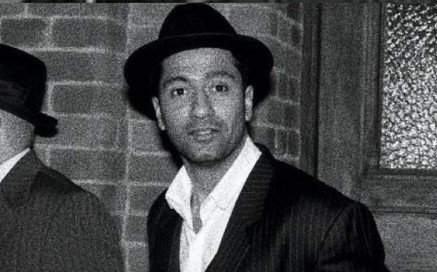The Bipoic of Sardar Udham (Vicky Kaushal) starts with introduction of his early life, his love for Reshma and later his steadfast determination to take revenge on Dwyer. In one line Sardar Udham Review – The ambience of revenge is captured through a series of powerful images highlighted by Kaushal and Eileen Palmer (Kirsty Averton), who becomes Udham’s friend in London.
So, when Sardar Udham is finally sentenced to death after a sham of a trial in which the judge gives little time or space to the defence counsel, Palmer pleads with Udham to seek pardon. “You will live,” she implores. He refuses, saying that he is not a killer but a revolutionary. So he would not do that, but choose to hang.
Going back to the history, on March 13, 1940, Udham Singh avenged the Jallianwala Bagh massacre in Amritsar by assassinating Punjab’s former Lieutenant Governor Michael O’Dwyer in London. While Reginald Dyer was the one who gave the orders to mow down unarmed protestors in the walled garden on April 13, 1919, O’Dwyer “gave his tacit encouragement, and explicit approval, for the violent suppression of the unrest in Punjab”, writes historian Kim A Wagner in Jallianwala Bagh.
Barring Udham Singh’s death, the other events don’t fall into a neat chronological pattern – eschewing an explosive opening or climax – because Sircar doesn’t treat the freedom fighter’s life as a ‘highlights package’, extracting the most dramatic mileage from an already charged story. He first wants to understand the film’s centrepiece – the different interlinked parts of the ‘big picture’ – hoping that those choices also produce an entertaining film. This allegiance may have helped the filmmaker nail an elusive target: cracking the biopic code.
“That’s the thing I like about Indians. The willingness to please.” This subplot, however, gets a comforting closure when Udham tells the court that, “Some Indians have begun enjoying slavery” – as if someone demolished the walls of a soundproof room.
Even the routine interrogations – featuring Udham, Swain and an Indian translator – aim high. They follow a fixed pattern: Swain probes, Hindi translation, a mute Udham – no dialogue-baazi, no melodramatic rage. But then something happens that reveals the freedom fighter’s character and the film’s purpose. “Well, you must really hate the British,” Swain tells him, trying his best to break Udham. A calm reply with a tinge of smile: “No, I’ve many British friends (…) I don’t hate you [either]. You’re just doing your job.”
The movie also dignifies the ‘violent’ freedom fighters. They were not rash or bloodthirsty, it implies again and again, but sharp and compassionate, who always knew their ultimate target: British imperialism.
Sardar Udham, streaming on Amazon Prime Video, raises the bar for the genre – the word is used for the sake of convenience, not to suggest that there is anything remotely generic in the film – in a way that will be hard for the Mumbai movie industry, which usually purveys pulpy pop history in which actor takes precedence over character, to replicate.
Watch Sardar Udham online
The facts that are laid out on the screen might not be absolutely accurate – a disclaimer at the start of the film admits as much although Sardar Udham is “based on true events” – but details that the two screenwriters Subhendu Bhattacharya and Ritesh Shah pack into the busy script are orchestrated to convey a sense of truth.

